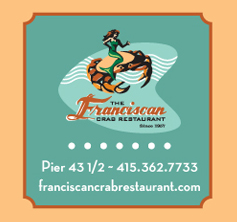Tired of counting calories, sick of starvation diets, and sore from hours of exercise? Still dreaming of fitting into those tight jeans? Bewildered by the avalanche of weight-loss programs – low fat, no fat, low carb, no carb – in the popular media? You are not alone! Most people know that they should watch their calories yet find it difwficult to suppress their appetite. Weight-loss pills can leave you feeling jittery and over-caffeinated. With 34 percent of the population overweight, and an equal percent considered obese, many are looking for a more holistic solution. We need an approach that can increase our metabolism and support radiant health without sacrificing nutritious, delicious food.
THE PROBLEM
So why can’t we lose weight? General guidelines point to the usual suspects: fatigue, lack of water and exercise, stress, and so forth. Many of us are walking around sleep deprived, which can impact multiple organ systems and contribute to weight gain. Dehydration can also affect the metabolism of fat. Conventional wisdom recommends at least 10 eight-ounce glasses of water a day; however, a rule of thumb is to drink enough water until one’s urine is clear or pale yellow. Soda and fruit juices contain sugar, both added and natural, and are not substitutes for water.
Stress is another major culprit in weight management. When the stress hormone cortisol is high, it causes the body to store fat more readily. Negative emotions can also affect the digestive system and lead to weight gain. Avoid eating when emotionally upset because stress signals from the body can cause compulsive binging and overeating. Practicing stress reduction techniques like meditation, yoga and tai chi can be helpful.
THE SOLUTION
Getting regular exercise is essential to increase your metabolism, reduce stress, prevent disease, and improve overall health. The key is to make physical activity a part of your daily routine. A 30-minute jog, bike ride, or even a walk can make a big difference.
Eating whole, “real” foods also supports weight loss. The best diet is high fiber, low fat, with whole grain carbohydrates and lean proteins. Fiber (oats or oat bran) can speed up transit time and make you feel full. We should also include cholesterol-lowering foods like apples, bananas, carrots, cold water fish, dried beans, garlic, and grapefruits. Healthful fats like olive oil can also be good for weight loss. Things like beer, wine, cheese, dairy products, tobacco, aged and cured meats, sugar, and greasy fried foods may contribute to raising cholesterol and are therefore best avoided.
Weight-loss protocols focus on promoting healthy digestion, energizing the body, and improving elimination of toxins and waste products. In Asian medicine, bitter, sour and acrid foods encourage weight loss. Sweet, salty and greasy foods slow down the metabolism.
How and where we eat is also important. Eating while watching TV, driving, or at your desk can actually increase weight gain. “Conscious eating” includes savoring both your food and dining companions. It is well known that digestion starts in the mouth, so slow down, and take time to enjoy your food. It will help with digestion and also help your brain and body register that you have had a satisfying meal and don’t need to take in more calories.
For those who have tried these weight-loss methods without success, acupuncture offers another approach. It can rev up your metabolism, boost energy and willpower, and conquer cravings.
Furthermore, a good weight-loss program includes a support team – a health care provider, a counselor or a fitness instructor. Family, friends or a support group can give you the strength, commitment and encouragement to finally lose weight, look great and get healthy!
Gayatri Bhatnagar is a licensed acupuncturist and holistic healer at Senspa.
Health Matters
Why can't we lose weight?
Why can't we lose weight?








